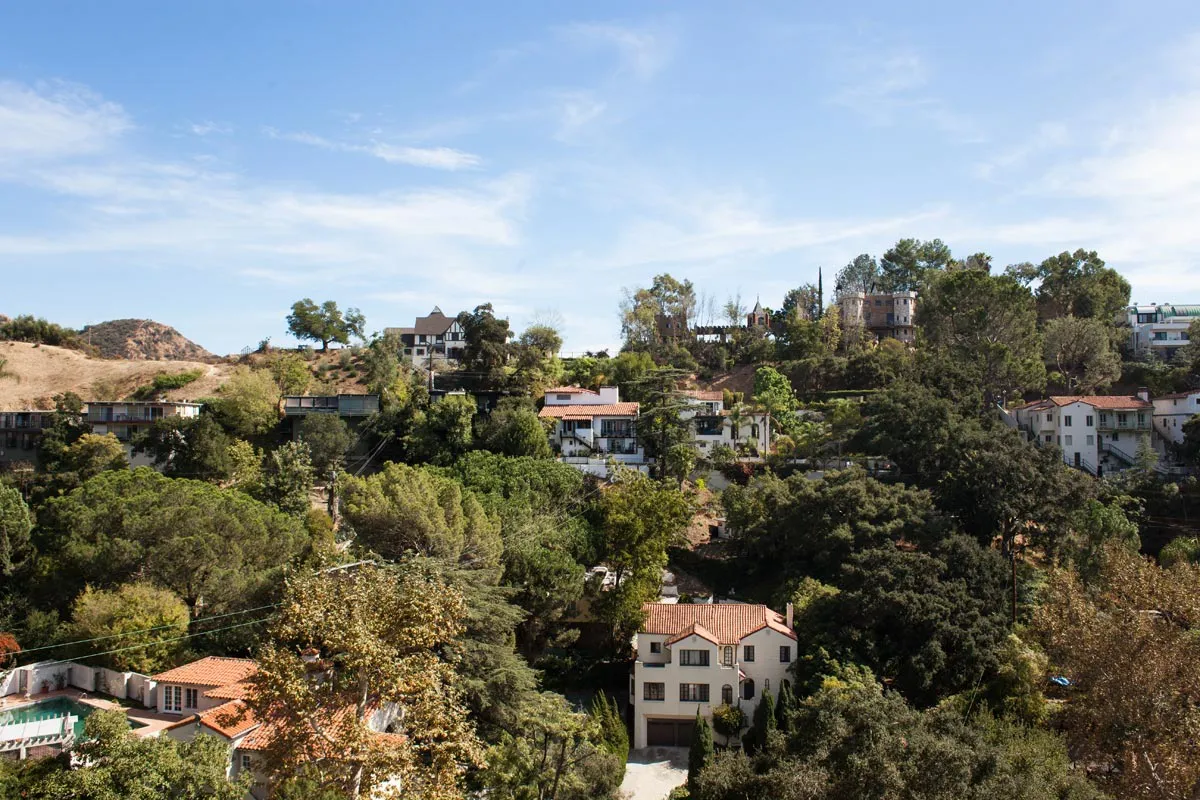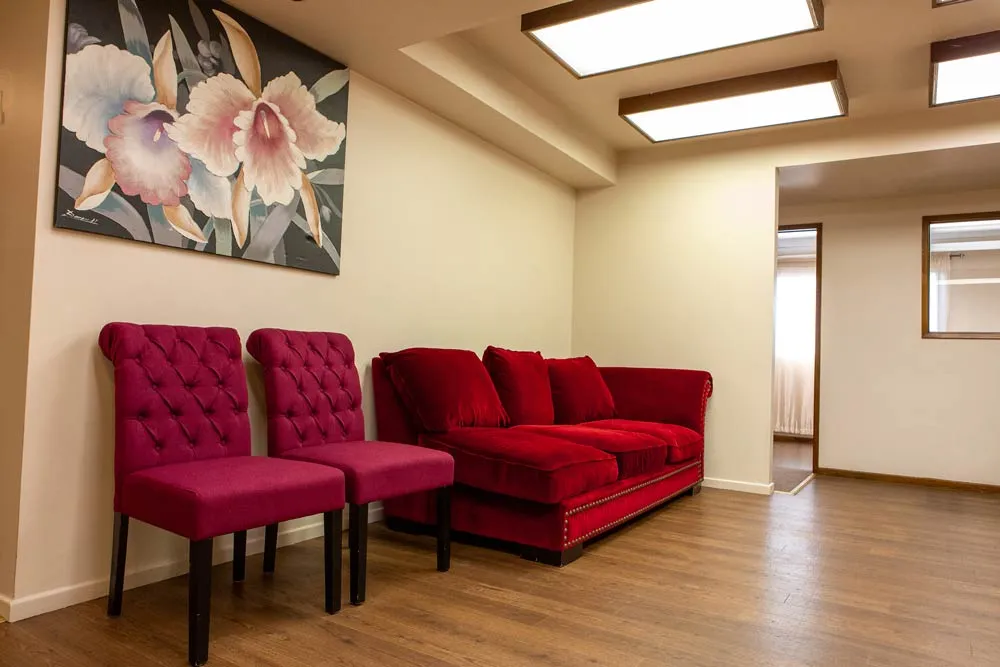Explore leading marijuana rehab centers and treatment facilities in Los Angeles and nearby areas. Marijuana addiction treatment centers provide comprehensive programs to address dependency, manage cravings, and support mental health recovery. Through evidence-based behavioral therapy, relapse prevention, and mindfulness techniques, individuals receive the tools needed to regain control, restore motivation, and rebuild relationships. Find the best marijuana rehab centers dedicated to helping individuals achieve lasting recovery and overall well-being.
Ads
More Info
Advertisement Disclosure
Our website is funded by advertisers who pay for prominently labeled placements.
Read More112 Rehab Centers were found
Filters
Locations
- Los Angeles(+98)
- Culver City(+14)
- Westlake Village(+13)
- Woodland Hills(+11)
- Beverly Hills(+10)
- Santa Monica(+9)
- Sherman Oaks(+7)
- West Hollywood(+6)
- Malibu(+5)
- Chatsworth(+5)
- Pasadena(+5)
- Encino(+5)
- Redondo Beach(+4)
- Lancaster(+4)
- Reseda(+4)
- Studio City(+4)
- Northridge(+3)
- San Mateo(+3)
- Lynwood(+3)
- Vernon(+3)
- Van Nuys(+3)
- Tarzana(+3)
- North Hollywood(+3)
- Glendale(+3)
- Gardena(+3)
- Riverside(+3)
- Granada Hills(+2)
- Shadow Hills(+2)
- Venice(+2)
- Orange County(+2)
- Pomona(+2)
- West Hills(+2)
- Valley Village(+2)
- Burbank(+2)
- Brentwood(+2)
- Long Beach(+2)
- Sun Valley(+1)
- Torrance(+1)
- San Jacinto(+1)
- San Pedro(+1)
- Upland(+1)
- Whittier(+1)
- Toluca Lake(+1)
- Thousand Oaks(+1)
- Simi Valley(+1)
- Mission Viejo(+1)
- Acton(+1)
- Beaumont(+1)
- Wilmington(+1)
- Panorama City(+1)
- Anaheim(+1)
- Laguna Hills(+1)
- Inglewood(+1)
- Alhambra(+1)
- Rosemead(+1)
- Maywood(+1)
- Manhattan Beach(+1)
- Monterey Park(+1)
- Claremont(+1)
- Covina(+1)
- La Puente(+1)
- Pico Rivera(+1)
- San Fernando(+1)
- Azusa(+1)
- Santa Fe Springs(+1)
- Glendora(+1)
- Agoura Hills(+1)
- El Segundo(+1)
- Duarte(+0)
- Sunland(+0)
- Downey(+0)
- Cudahy(+0)
- El Monte(+0)
- Compton(+0)
- Hermosa Beach(+0)
- Cerritos(+0)
- Calabasas(+0)
- Bellflower(+0)
- Bell Gardens(+0)
- Avalon(+0)
- Arcadia(+0)
- Altadena(+0)
- Paramount(+0)
- South El Monte(+0)
- Walnut(+0)
- West Covina(+0)
- Santa Clarita(+0)
- San Gabriel(+0)
- San Dimas(+0)
- Rolling Hills(+0)
- Orange(+0)
- Hawaiian Gardens(+0)
- Palmdale(+0)
- Norwalk(+0)
- Montebello(+0)
- Lakewood(+0)
- South Pasadena(+0)
- Carson(+0)
- Hawthorne(+0)
Conditions
- Drug(+278)
- Alcohol(+219)
- Mental Health(+195)
- Opioid(+193)
- Cocaine(+184)
- Trauma(+180)
- Methamphetamine(+177)
- Benzodiazepines(+174)
- Heroin(+173)
- Prescription Drugs(+159)
- Depression(+152)
- Anxiety(+149)
- Xanax(+145)
- Synthetic Drugs(+138)
- PTSD(+133)
- Adderall(+131)
- Marijuana(+112)
- Bipolar(+109)
- Ecstasy(+104)
- MDMA(+99)
- Behavioral Health(+93)
- LSD(+93)
- Psychedelics(+91)
- Fentanyl(+71)
- Stress(+71)
- OCD(+69)
- Personality Disorders(+63)
- ADHD(+61)
- Gambling(+38)
- Eating Disorders(+35)
- Anorexia(+34)
- Binge Eating Disorder(+34)
- Bulimia(+33)
- Schizophrenia(+32)
- Gaming(+28)
- Internet Addiction(+27)
- Sex Addiction(+25)
- Burnout(+23)
- Pornography(+22)
- Shopping(+10)
- Narcissism(+8)
Insurances
- BlueCross BlueShield(+129)
- Aetna(+126)
- Anthem(+105)
- Cigna(+105)
- United Healthcare(+66)
- Humana(+63)
- Optum(+53)
- Medicaid(+53)
- MHN(+51)
- Magellan Health(+47)
- Kaiser Permanente(+39)
- Medicare(+31)
- GEHA(+31)
- ComPsych(+29)
- Highmark(+25)
- AmeriHealth(+13)
- Tufts Health(+11)
- Oscar(+9)
- CareFirst(+9)
- Molina Healthcare(+8)
- Intermountain Healthcare(+6)
- Beacon Health Options(+2)
- UMR(+2)
- NYSHIP(+2)
- ILWU(+2)
- Geisinger(+2)
- Empire Life(+2)
- Empire BCBS(+2)
- Bright Health(+2)
- GuideWell(+1)
Therapies

$30,000-$50,000

$45,000+ - 30-90 days

Call for rates - 7-30 days

$30,000

$1,750-$3,500

$30,000+/month - 30 - 90 days
What to Expect from Marijuana Addiction Treatment in Los Angeles
Marijuana is often perceived as a harmless or even beneficial substance, especially with its legalization in many parts of the U.S. However, for some individuals, chronic marijuana use can lead to dependency, cognitive impairment, and significant disruptions in daily life. While marijuana does not cause physical withdrawal symptoms as severe as opioids or alcohol, it can result in psychological addiction, emotional instability, and motivation loss, making professional rehab necessary for those struggling to quit.
Los Angeles has seen a rise in individuals seeking treatment for Cannabis Use Disorder (CUD), particularly as high-potency THC products such as dabs, edibles, and vape oils become more widely available. Rehab programs specializing in marijuana addiction offer therapy, behavioral interventions, and holistic support to help individuals regain control over their lives. Many programs use Cognitive Behavioral Therapy (CBT) and other evidence-based therapies to address underlying causes of dependency.
Understanding Marijuana Addiction: Why Some People Struggle to Quit
Not everyone who uses marijuana becomes addicted, but frequent, long-term use can lead to dependency. THC, the active compound in marijuana, binds to cannabinoid receptors in the brain, producing feelings of relaxation and euphoria. Over time, the brain adapts to regular THC exposure, making it difficult for users to feel normal or motivated without it.
Many individuals start using marijuana recreationally but develop a habit of daily or excessive consumption, using it to manage stress, anxiety, or boredom. As dependency grows, some users experience difficulty concentrating, memory problems, and a lack of motivation, commonly referred to as "amotivational syndrome." Others rely on marijuana to sleep, socialize, or cope with emotional issues, making it hard to function without it.
Signs That Marijuana Use Has Become a Problem
One of the biggest challenges in identifying marijuana addiction is that many people downplay its effects, believing it to be non-addictive. However, certain behaviors indicate a growing dependency. If you or someone you know is also struggling with other behavioral concerns such as gaming addiction or pornography addiction, it may be important to seek comprehensive care.
Many users find themselves smoking or consuming marijuana multiple times a day, even when they initially intended to cut back. Others struggle to go even a day or two without experiencing irritability, anxiety, or mood swings. When marijuana use starts interfering with work, relationships, or personal responsibilities, it is often a sign that professional help may be necessary.
Other warning signs include increased tolerance, where users need stronger doses to feel the same effects, and withdrawal symptoms such as sleep disturbances, cravings, restlessness, or irritability when attempting to quit. Some individuals also experience mental fog, paranoia, or social isolation as a result of chronic marijuana use.
The Challenges of Marijuana Withdrawal and Detox
Although marijuana withdrawal is not physically dangerous like benzodiazepine or opioid withdrawal, it can be extremely uncomfortable and emotionally distressing. Many people who try to quit on their own relapse due to intense cravings, irritability, and difficulty sleeping.
Common marijuana withdrawal symptoms include severe anxiety, depression, mood swings, headaches, nausea, and night sweats. Sleep disturbances are particularly difficult, as THC plays a role in regulating REM sleep. Many users struggle with vivid nightmares or insomnia after quitting, leading them to relapse simply to restore sleep patterns.
Because marijuana withdrawal is largely psychological, supervised detox and therapy are critical for long-term success. Rehab centers in Los Angeles provide medical and therapeutic support to help individuals manage withdrawal symptoms, rebuild motivation, and develop healthier coping mechanisms. Explore available levels of care to find the right support for your needs.
Therapy and Behavioral Treatment for Marijuana Addiction
Since marijuana addiction is primarily psychological, therapy is the cornerstone of treatment. Motivational Interviewing (MI) is also effective, helping individuals explore their reasons for quitting and develop personal goals. Many marijuana users struggle with low motivation and procrastination, so rehab programs emphasize goal setting, accountability, and lifestyle changes.
Group therapy and peer support programs provide a sense of community and encouragement, particularly for individuals who have built their social lives around marijuana use. Trauma-informed care and EMDR therapy may be recommended for those with a history of emotional pain.
Holistic approaches such as meditation, mindfulness, and physical activity help restore natural dopamine levels, allowing individuals to feel pleasure and relaxation without relying on THC. Nutrition and sleep therapy are also key, helping individuals regulate mood, restore healthy sleep patterns, and rebuild physical well-being.
The Link Between Marijuana Use and Mental Health
Many individuals struggling with marijuana addiction also experience underlying mental health conditions such as depression or ADHD. Some use marijuana to self-medicate, only to find that it worsens their symptoms over time. Heavy marijuana use has also been linked to increased risk of psychosis, paranoia, and schizophrenia in predisposed individuals.
Dual diagnosis treatment is essential for individuals with co-occurring substance abuse and mental health disorders. Rehab centers in Los Angeles specializing in marijuana addiction and psychiatric care offer medication management, therapy, and alternative treatment approaches to help individuals achieve emotional stability without relying on THC. For more information on related issues, visit our comprehensive conditions directory.
Life After Marijuana Rehab
Many individuals who complete marijuana rehab struggle with social reintegration, stress management, and finding fulfillment without THC. Developing a new lifestyle that supports sobriety is critical for long-term recovery.
Aftercare programs in Los Angeles provide continued therapy, peer support, and relapse prevention strategies. Sober social events and wellness programs offer new ways to connect with others without relying on marijuana. Many individuals benefit from vocational counseling, educational programs, and goal-setting workshops to rebuild confidence and motivation. Explore support for other challenges such as binge eating disorder or burnout as part of your recovery journey.
The key to long-term success is creating a fulfilling and purpose-driven life, where marijuana is no longer needed as a crutch. Many individuals find that once they develop new interests, healthier habits, and a strong support system, the urge to use marijuana fades naturally.
Finding the Right Marijuana Rehab in Los Angeles
Choosing the right treatment program depends on individual needs, the severity of addiction, and personal goals. Some individuals require inpatient rehab for intensive support, while others benefit from outpatient programs that allow them to continue working or attending school.
For those experiencing severe anxiety, depression, or dependency, dual diagnosis treatment is essential to ensure both addiction and mental health conditions are addressed. Speaking with a treatment specialist can help determine the best approach for lasting recovery.
Frequently Asked Questions
Can marijuana be addictive?
What are the signs of marijuana withdrawal?
How long does it take to recover from marijuana addiction?
Does insurance cover marijuana rehab in Los Angeles?
Ads
More Info
Advertisement Disclosure
Our website is funded by advertisers who pay for prominently labeled placements.
Read More






































